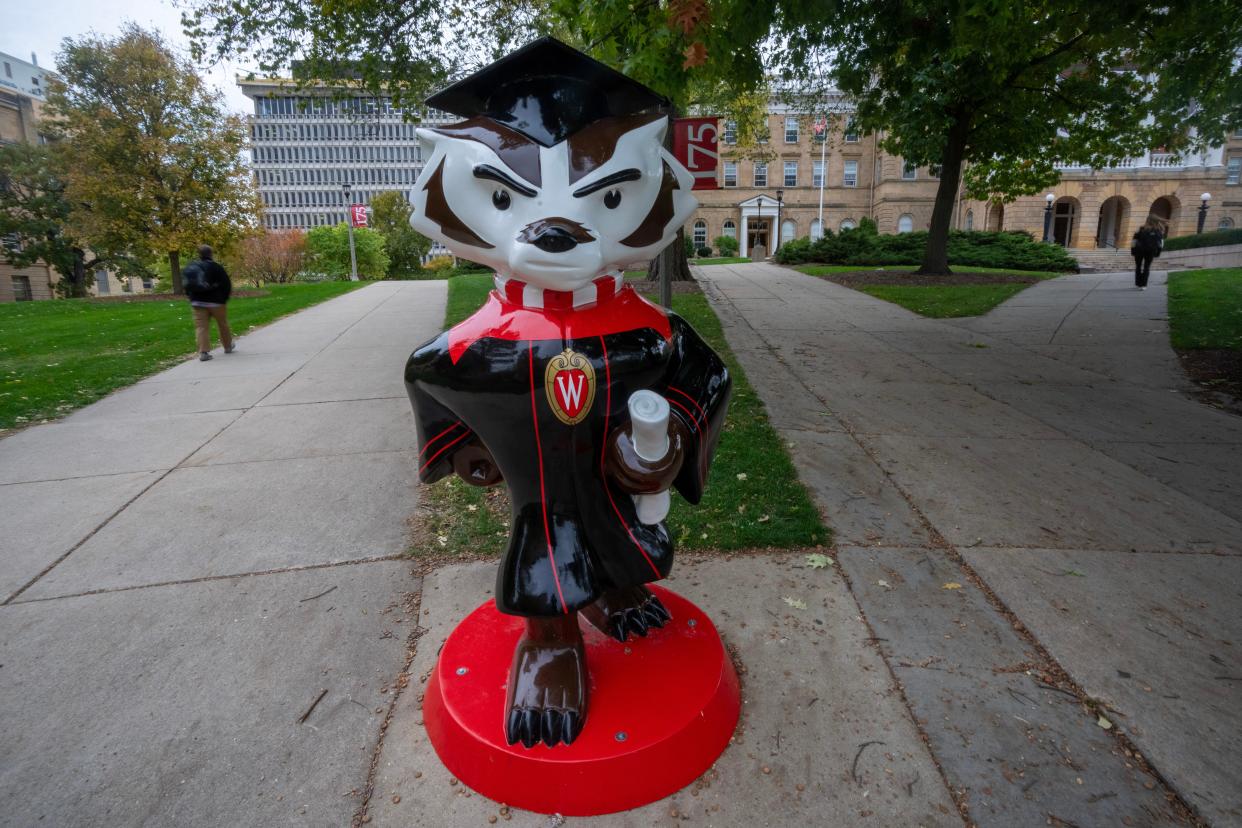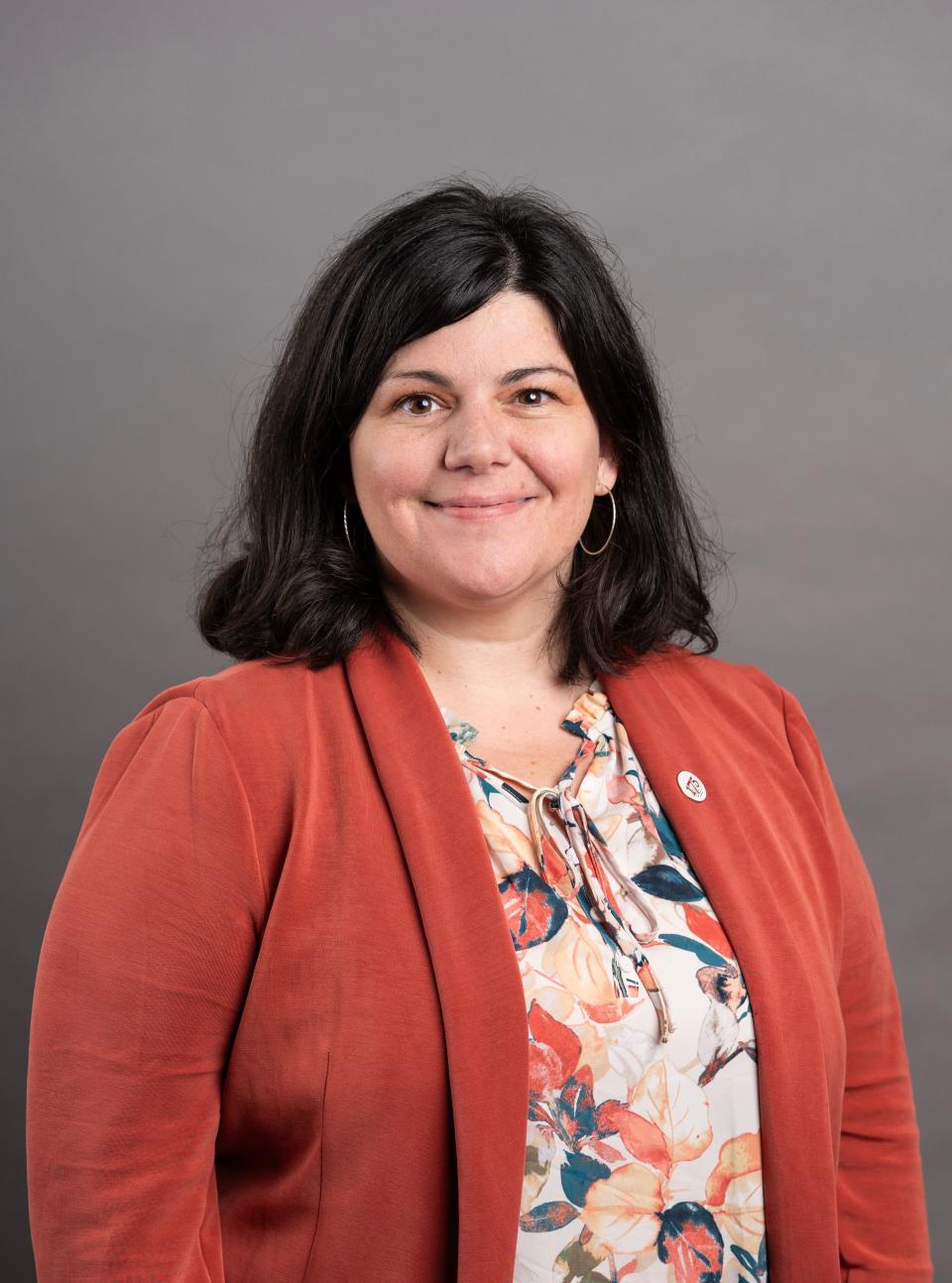UW-Madison, other UW campuses to offer six weeks of paid parental leave

The University of Wisconsin System is becoming more family friendly.
Employees will receive six weeks of paid parental leave after the birth or adoption of a child under a new policy bringing UW campuses in line with many other universities across the country. The policy takes effect July 1.
UW employees previously cobbled together vacation time, sick days or unpaid leave. In some extreme cases, employees relied on the kindness of their supervisors to secure time off.
Amber Saylor Mase arrived at UW-Madison for her postdoctoral research fellowship in 2014, a few months before her baby was due. Postdocs at the time didn't even receive vacation or sick time they could save up to use in the weeks after a birth, she said.

"The standard was: You get nothing," she recalled. "Be happy with what you can get."
Offering paid parental leave, Mase said, sends a strong message to women working at Wisconsin's public universities.
"I think the new policy shows some sense of 'We do value you," she said. "'We want to give you time to recover from this life event, bond with your baby and then come back to work.'"
Paid parental leave push began in 2013
The new benefit comes after a decade of discussion and advocacy at UW-Madison.
Adena Rissman, a UW-Madison professor in the department of forest and wildlife ecology, got involved in the push for paid parental leave after having her son in 2012. Even more of a motivating factor for her was seeing the trouble her postdoc, Mase, went through to receive time off.
"We were scrambling," Rissman said. "Expecting parents don’t have time to waste trying to understand complicated HR systems. I felt it was inefficient and unjust and really getting in the way of our research."
The lack of paid parental leave also hindered employee recruitment, Rissman said. She recalled several search committees she served on where it came up.
"It is not the conversation we would prefer to spend our time on when we're trying to recruit someone new to explain why we don't have a benefit that the majority of our peers offer," Rissman said.
Mase said she was able to negotiate for six weeks of paid maternity leave but the experience made her feel guilty for taking time off work. It also reinforced the power imbalance of her situation.
"I definitely would have appreciated a more standardized process for when this very common situation happens, of having a baby, versus, (feeling) like, 'Oh they're making an exception for me or going out of their way to accommodate me,'" Mase said.
Mase started her fellowship with the hope of becoming a tenure-track professor. The lack of recovery time after delivery played a part in her decision to pursue a less-intensive staff position. She now works as an evaluation specialist with UW-Madison Extension.
A lack of paid parental leave "creates a lot of stress on women trying to pursue that career path," she said.
UW-Madison report, petition drew attention to lack of paid family leave
Momentum for paid parental leave has built over the past year.
Democratic Gov. Tony Evers proposed a 12-week paid family leave program for public and private sector workers last spring. The GOP-controlled Legislature, however, declined to fund the program.
Last summer, a group co-chaired by Rissman released a report with a dozen recommendations on how to better support employees and their families, including 12 weeks of paid family leave. The report identified multiple problems with UW-Madison's leave policies, including employees receiving no guidance on how to take maternity leave and supervisors potentially attempting to shorten or prevent unpaid leave, which may run afoul of the federal gender-discrimination law.
In February, the UW-Madison graduate student union delivered a petition calling for paid parental leave benefits to the chancellor's office. More than 700 people had signed it, including 84 who provided personal testimonies.
Paid parental leave is widely supported in Wisconsin
A 2022 poll by Marquette Law School Poll underscored the public's widespread, bipartisan support for this benefit. About 73% of registered voters favored mandating employers to provide new parents with paid leave.
A UW-Madison survey of 19 private sector employers found employers within southcentral Wisconsin offer eight weeks of paid leave, and employers within southeast Wisconsin offer 10 weeks of paid leave for the childbearing parent.
In the higher education sector, UW-Madison reported about half of institutions in Illinois, Indiana, Michigan, Ohio and Wisconsin provide an average of six weeks of paid parental leave.
“Coming from the private sector, it was kind of shocking that we didn’t do this," UW Regent Ashok Rai said during a recent board meeting.
Paid parental leave estimated to be low-cost benefit
UW officials estimate the annual cost of the program across the 13 universities will be about just shy of $460,000. A little over a third of the cost will be funded with taxpayer dollars.
Staff salaries are budgeted, so the campus already bears the cost of backfilling positions when employees need to take time off, said Daniel Chanen, who leads human resources for the UW System. That makes the cost relatively modest.
Some graduate workers left out of policy
The parental leave policy for UW-Madison covers lecturers and graduate assistants. The UW System policy, however, doesn't cover the roughly 1,400 graduate workers at other UW campuses, including nearly 1,000 at UW-Milwaukee.
UW System spokesperson Ethan Schuh said paid parental leave is being provided to employees who have general leave benefits, which includes UW-Madison graduate assistants. But UW is not expanding leave eligibility to new groups of employees.
Maddie Topf, co-president of UW-Madison's Teaching Assistants Association, said lack of parental leave is one of the most commonly cited concerns the union heard from its members. It left graduate students with difficult choices: Delay degree progression, wait to start a family or drop out.
"It really affects your degree if you do not have access to this benefit; it affects your life," she said. "Choosing whether to start a family and if they do, how their degree progress is affected, is a heavy decision to be made without paid leave."
Contact Kelly Meyerhofer at kmeyerhofer@gannett.com or 414-223-5168. Follow her on X (Twitter) at @KellyMeyerhofer.
This article originally appeared on Milwaukee Journal Sentinel: University of Wisconsin-Madison to soon offer paid parental leave

